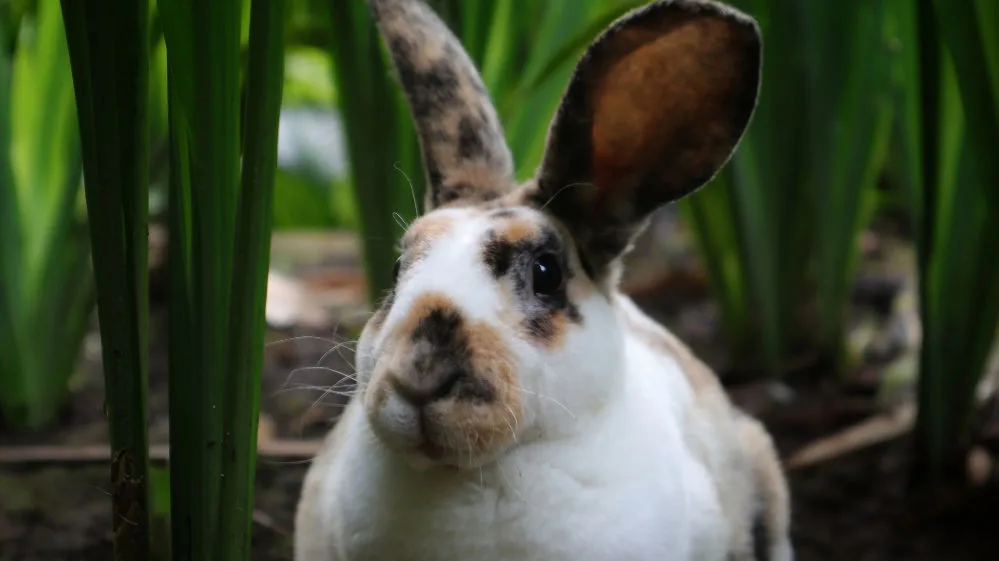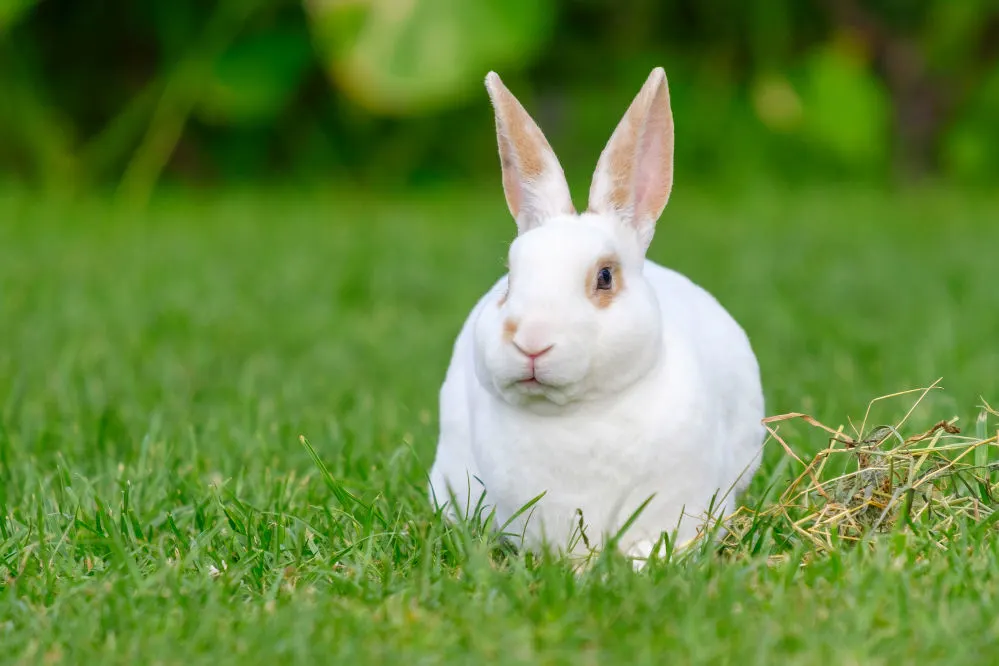Have you just adopted your pet rabbit and are now wondering how much it’ll cost to neuter them? Well, that’s why you’re here. This guide aims to provide an in-depth review of this topic.
All indoor rabbit owners know about the inevitable visit to the neuter clinic with their beloved fur ball. However, these procedures can come with a hefty price tag, so knowing how much it’ll cost can help you better prepare.

Not only does this guide help you plan and budget, but it also covers everything you need to know. This includes any other must-know information regarding neutering or spaying, from when to go and how to take care of a neutered bunny.
It’s about that time to dive into how much it costs to neuter a rabbit.
How much does it cost to get a rabbit neutered or spayed?
Before getting into the nitty-gritty, knowing the difference between spaying and neutering may benefit you.
A spay, or more formally, an ovariohysterectomy, involves the surgical removal of the ovaries, fallopian tubes, and uterus in female animals. In contrast, the testes (male sexual organs) are surgically removed from male rabbits, known as orchiectomy.
As you can see, these surgical procedures differ quite a lot and will impact the overall costs depending if you have a male or female bunny. A spay or neuter surgery will likely range from as low as $50 to highs of around $700. The average cost in the United States is about $250, which is relatively high.
Ultimately, the cost will depend on the sex of your rabbit, which we’ll look at below.
Female rabbits (doe)
For does, recovering from spaying takes much longer compared to neutering as the procedure is more invasive. This means you’ll pay about 10%-25% more than you would for male rabbits, from roughly $225-$250 on average. This can go up to $700, as mentioned above.
Male rabbits (bucks)
The average cost for bucks will always be less than for does. You can pay as little as $50-$75 for neutering in rural areas. But this can quickly increase to around $600, depending on where you live.
PS: Find out how many rabbit breeds are out there.
Factors to consider when spaying/neutering your rabbit
While the above information is a good estimation, there are a few more factors that come into play regarding how much you pay.
Clinics vs. private veterinarians
Many low-cost veterinary clinics will offer a low-cost spay or neuter (usually less than $100) compared to private veterinarians, which will likely charge hundreds of dollars. You may have to go to a rabbit specialist, which can also add more.

Extra costs for a spay/neuter
Sometimes additional charges may ensue if added services are needed during the neutering process. The vet may have to prescribe rabbit medicine like painkillers, conduct blood tests, and do other health checks while your bun is under general anesthesia. Some places will also charge more for pregnant doe spays because of the risk for issues like bleeding and tearing tissues.
Your location
It’s also important to remember that where you live may impact the cost of this procedure. You’ll likely pay much more in the city than in country/rural areas, as with almost every resource or service.
Do you really need to spay or neuter your rabbit?
Bunnies are notorious for overbreeding. So, you’d want to take these preventive measures to ensure you don’t end up with unwanted pregnancies. Eventually, you might be sitting with a handful of unwanted rabbits that need to be neutered or spayed, piling up those medical bills.
However, if you wish to have adorable bundles of bun-buns, you can hold back on neutering/spaying for the time being.
Benefits of spaying/neutering your rabbit
Neutering or spaying is very beneficial to your pet rabbit’s health. Doing so may actually help lengthen the lifespan of your furry companion as it helps them become less susceptible to infections and degenerative diseases.
This procedure may also help calm your furry friend, making them more social animals and reducing behavioral problems.
Here are more health benefits:
- Neutering lowers the chances of testicular cancer in bucks.
- Spaying decreases the chances of uterine cancer in does.
- Male buns especially will be less territorial (no more urine spraying).
- Sexual aggressive behavior, mounting, and mood swings decrease.
- Rabbit litter training will be much easier, thanks to a calmer bunny.
When do you need to have your rabbit neutered?
Baby rabbits (kits or kittens) are only a few weeks of age and will be too young for this type of invasive surgery as it could be risky. So, you’d want to consider neutering or spaying older rabbits. You’ll know they’re ready when they’ve reached sexual maturity around six to seven months of age.
The youngest you’d want to consider neutering or spaying your bun should be six months. However, there are instances when vets perform the procedure as young as four months. It’s best to check with your vet, but six to seven months would be the best age.

For bucks, it’s possible to go ahead with neutering around 3.5 months old once their testicles have descended sufficiently and if your pet is big enough.
Where should you have your rabbit spayed or neutered?
Most vets offer neuter services, and there’s likely one in your area. But you want to ensure you’re leaving this procedure to experienced rabbit veterinarians. This will ensure no harm is done to your healthy rabbit.
It’s very risky to let an inexperienced vet neuter or spay your bun, as there’s always a risk of bleeding or infection, regardless if it’s just a small incision.
How to take care of neutered/spayed rabbits
Post-surgery rabbit care is simple. Firstly, you don’t want to overwhelm your bunny, especially on the day of surgery, so remain calm.
Feed your furry friend as you usually would, and provide a clean, calm environment with lots of fresh water. You also want to significantly minimize running, jumping, playing, and other activities to prevent strain on the incision site.
If you have a small child, you also want to keep them away from their furry friend during recovery time. The healing process may take up to ten days, so ensure you work with your vet to provide your little patient with proper medical care.
Wrapping up how much it costs to neuter rabbits
By now, you should have a good idea of this type of surgery price. It’s essential to note that all vet fees will vary depending on your location, your bunny’s sex, and whether you have a healthy rabbit.
Not only can you now plan better financially, but you also have insight regarding neutering and spaying that would make other pet owners green with envy.

Next Up: What does rabbit poop look like?
Steph Dyson is a travel journalist by trade but a lover of all small pets. She’s been a pet mum to everything from gerbils to guinea pigs, rabbits to hamsters, and fish to dogs of all shapes and sizes. She wants to share her years of experience with small pets and make Small Pet Guides the go-to website for pet owners seeking information and care advice.

